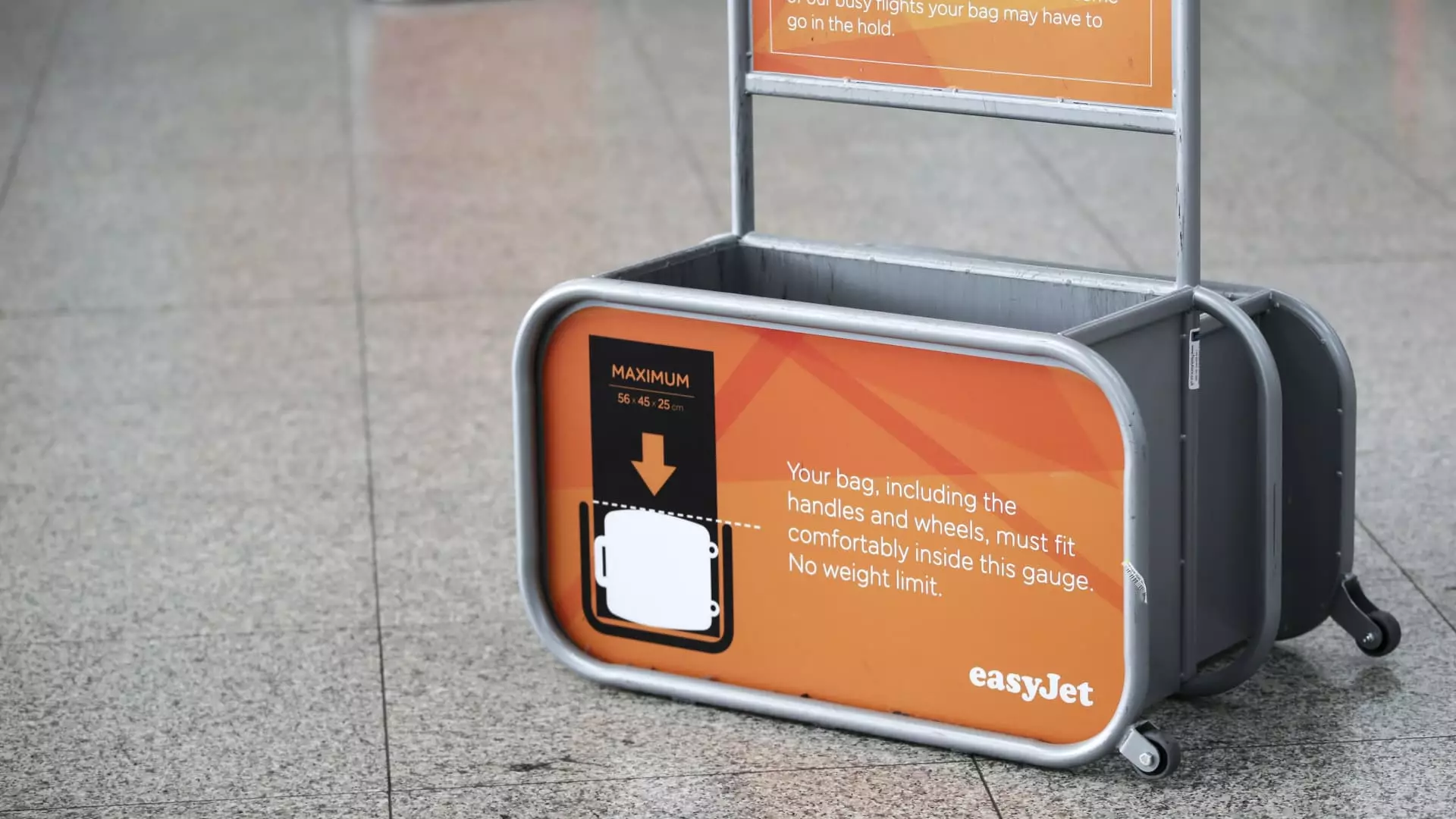In a robust display of financial performance, EasyJet announced significant earnings from ancillary revenue, totaling £3.59 billion ($4.5 billion) for the fiscal year ending in October. This figure, which represents a startling 22% increase year-on-year, underscores the airline’s strategic pivot toward maximizing income through additional passenger services beyond their core flight offerings. Particularly noteworthy was the airline segment’s ancillary revenue, which reached an unprecedented £2.46 billion, marking a 13% rise from the previous year.
The airline sector has increasingly moved toward an “unbundled” fare model; by offering low base prices and charging for various add-ons—such as extra luggage, seat selection, and expedited boarding—airlines like EasyJet have positioned themselves more competitively in a saturated market. This shift not only attracts budget-conscious travelers but also allows airlines to tailor their offerings to consumer preferences, thus enhancing customer experience for those willing to pay for additional convenience.
Despite EasyJet’s impressive financial results, the airline faces significant scrutiny from regulators, particularly in Spain. Recently, EasyJet, along with four other low-cost carriers, was penalized by Spain’s Ministry of Consumer Rights, which described certain ancillary charges as “abusive.” EasyJet was hit with a fine of €29 million for allegedly deceptive practices, including charges for hand luggage and fees for reserving adjacent seating for families.
CEO Johan Lundgren openly disagreed with these regulatory actions, labeling them as misaligned with European law and emphasizing that the airline’s offerings are designed to meet diverse consumer needs. He pointed out that many travelers opt out of ancillary services, suggesting that choices provided by the airline cater to varying preferences. Lundgren’s rationale posits that the ability to customize travel options keeps base fares lower, ultimately benefiting consumers.
The market reaction was mildly positive following EasyJet’s announcements, with shares rising by 2.5% early in the trading session. This contrasts sharply with the performance of its main competitor, Ryanair, which reported an 18% decline in profits for the half-year period. Ryanair’s struggles with overcapacity, coupled with the rising pressure on consumer spending and ongoing issues related to Boeing’s B737-Max aircraft, illustrate the volatility within the industry. While EasyJet thrives on targeted ancillary revenue, Ryanair faces challenges that may hinder its capacity to maintain similar financial gains.
The divergence in performance outcomes raises questions about business strategy within the low-cost airline sector. EasyJet’s approach of enhancing ancillary revenue appears to provide a more sustainable financial model amidst fluctuating passenger numbers and rising operational costs. In contrast, Ryanair’s show of resilience after the COVID-19 pandemic highlights the risks associated with over-reliance on passenger ticket sales alone without a comprehensive ancillary monetization strategy.
The shifting patterns in consumer behavior underscore a broader trend: travelers today are increasingly prioritizing unique travel experiences and customizable options. Lundgren noted a “quiet strong” demand for air travel across Europe, suggesting that, despite economic pressures, the appetite for international holidays remains robust. This observation resonates with broader global trends, as increasingly mobile consumers seek value in personalized travel arrangements.
While EasyJet faces criticism for its operational fees, the company’s financial strategy seems to effectively align with evolving consumer demands. The airline’s ability to adapt to market conditions and regulatory landscapes will ultimately determine its capability to sustain long-term growth and profitability.
EasyJet’s financial achievements in ancillary revenue present a compelling case for the efficacy of their unbundled fare approach. The airline seems well-positioned to navigate the dual challenges of regulatory scrutiny and intense competition, as long as it continues to evolve in response to changing market dynamics and consumer preferences.

